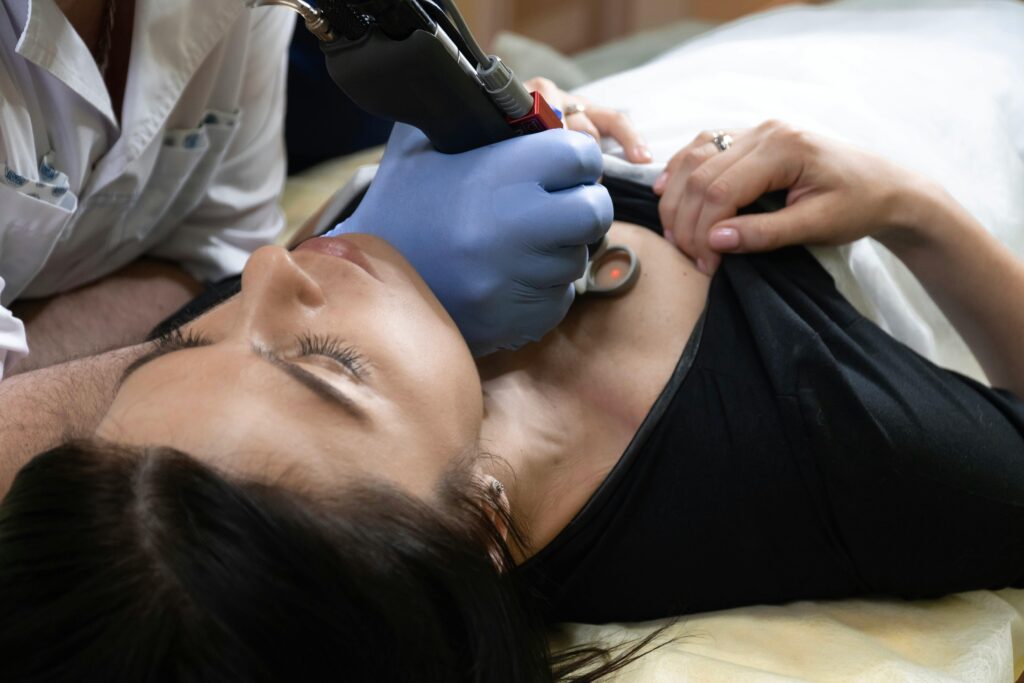When people think about doctors, they often picture long shifts, unpredictable hours, and years of demanding work. While that’s true for many areas of medicine, it doesn’t capture the full picture. Medicine is a diverse field, and different specialties vary not only in the patients and conditions you work with, but also in how much flexibility and balance you can maintain outside of work.
In recent years, more physicians, both in training and in practice, have placed greater emphasis on finding that balance. No specialty is without its challenges, but some are known for offering more predictable hours, lighter call schedules, and greater flexibility to enjoy life outside of medicine.
In this post, we’ll explore the specialties most often associated with a balanced lifestyle, highlighting what makes them appealing, the training required, and the trade-offs to consider.
What is a “Lifestyle” Specialty?
Before we start naming specialties, it’s worth clarifying what “lifestyle” means in medicine. Generally, when physicians talk about lifestyle-friendly specialties, they’re referring to:
- Work hours: Predictable schedules, minimal night or weekend shifts, and fewer emergencies.
- Work-life balance: The ability to reliably make time for family, exercise, hobbies, or travel.
- Control over schedule: Flexibility to work part-time, do locums, or adjust practice volume.
- Burnout risk: Lower rates of emotional exhaustion compared to other specialties.
- Compensation-to-effort ratio: Earning a competitive income without 70-to-80-hour workweeks.
With those factors in mind, let’s look at the specialties most regarded as lifestyle friendly.
Disclaimer: Reported salary estimates may vary substantially by location and within individual specialties. The figures presented are derived from CIHI, CMA, and Doximity.
1. Dermatology
Dermatology almost always tops the list when it comes to controllable lifestyle. Most dermatologists work regular weekday hours in outpatient clinics. Emergencies are rare, as skin cancers, acne, eczema, and cosmetic procedures can often be scheduled in advance. Dermatologists are rarely called in overnight.
Average Weekly Hours: 35–45
Average Annual Income: ~$490k in Canada, ~$490k in USA
Call Demands: Minimal; true emergencies are uncommon
Why it’s appealing: The work is highly controllable, with a mix of clinical and procedural tasks, and few after-hours emergencies. Dermatologists often report high satisfaction due to predictable hours and strong income potential.
Trade-offs: Dermatology is highly competitive to enter. Some may also perceive it as less intense compared to hospital-based specialties, even though it can significantly impact patients’ quality of life.

2. Ophthalmology
Ophthalmology offers an appealing blend of clinic and surgery without the brutal call schedules of other surgical specialties. Many eye procedures are elective and scheduled in advance, with emergencies (such as retinal detachments) being less frequent than in trauma or general surgery.
Average Weekly Hours: 40–50
Average Annual Income: ~$890k in Canada, ~$470k in USA
Call Demands: Present but lighter than in most other surgical specialties
Why it’s appealing: Ophthalmology offers the combination of surgery, clinic work, and regular hours. Subspecialties like retina or cornea may involve more call, while general ophthalmology often allows for controlled scheduling.
Trade-offs: The field is competitive, and surgical precision is critical. Balancing clinic and OR time requires careful scheduling.
Wondering which specialties are the toughest to match into? From dermatology to neurosurgery, we break down the most competitive fields in Canadian residency, and what it takes to stand out.
3. Psychiatry
Psychiatrists often work in outpatient clinics, hospitals, or private practices with regular business hours. Many psychiatric emergencies can be managed by teams in hospital settings, so not every psychiatrist needs to be on call. Virtual care has also expanded dramatically in psychiatry, making it one of the most telemedicine-friendly fields.
Average Weekly Hours: 35–45
Average Annual Income: ~$330k in Canada, ~$330k in USA
Call Demands: Generally light; emergencies are usually handled in hospital settings
Why it’s appealing: Psychiatry provides strong schedule flexibility, high patient interaction, and the ability to focus on longitudinal care. Many psychiatrists have control over their patient volume and office hours.
Trade-offs: Emotional demands can be high. Stigma around psychiatry still exists, and it can be challenging to manage complex patients remotely.

4. Radiology
Radiologists have a reputation for being “the doctor’s doctor.” They interpret imaging, including X-rays, CT scans, MRIs, and often work in a structured environment with defined hours. Many radiologists choose to sub-specialize, and teleradiology has made it possible for some to work remotely.
Average Weekly Hours: 40–50
Average Income: ~$300-750k, ~$530k in USA
Call Demands: Night or weekend coverage is sometimes required, though usually shared among colleagues
Why it’s appealing: Radiology offers strong intellectual engagement, predictable schedules, and minimal patient emergencies. Teleradiology options allow work from home, which is rare in many specialties.
Trade-offs: Limited direct patient interaction can feel isolating. Night shifts may be required in hospital settings.
From tuition to hidden expenses, the price tag of becoming a doctor in Canada adds up fast. Here’s a breakdown of the true cost of medical school.
5. Pathology
Pathologists spend most of their time in labs, analyzing specimens and biopsies rather than seeing patients directly. Schedules are generally predictable, with little overnight or weekend work. The work is highly intellectual and detail-oriented, but not typically emergent.
Average Weekly Hours: 35–45
Average Income: ~400k in Canada, ~$360k in USA
Call Demands: Minimal; limited to lab-related responsibilities
Why it’s appealing: Predictable schedules and minimal emergencies make pathology one of the most lifestyle-friendly specialties. It’s ideal for those who enjoy analytical work and less direct patient contact.
Trade-offs: Minimal patient interaction and the specialty may be under-recognized outside medical circles.

6. Family Medicine (Outpatient Focused)
Not every family physician has a balanced lifestyle, as those who cover obstetrics, ER shifts, or inpatient medicine often work long hours. But family doctors who build outpatient-focused practices usually have excellent control over their schedules. They can decide how many patients to see per day, whether to work evenings or weekends, and whether to work part-time.]
Average Weekly Hours: 40–50
Average Income: ~$350k in Canada, $300k in USA
Call Demands: Minimal unless also covering obstetrics or hospital patients
Why it’s appealing: Outpatient family medicine allows flexibility, control over hours, and the ability to build long-term relationships with patients.
Trade-offs: Administrative work can be significant, and income is lower than in procedure-based specialties.
Looking beyond being a physician? Explore high-impact, rewarding alternative careers in healthcare careers that offer great compensation and flexible lifestyles.
7. Physical Medicine & Rehabilitation (PM&R)
Physiatrists focus on rehabilitation for patients with spinal cord injuries, strokes, chronic pain, or musculoskeletal disorders. Physicians handle most of their work in outpatient settings, following structured schedules with little overnight call.
Average Weekly Hours: 40–50
Average Annual Income: ~$350k in Canada, $380k in USA
Call Demands: Generally light, often limited to consults
Why it’s appealing: PM&R allows strong control over daily schedule and patient load. Many enjoy seeing patients improve over time.
Trade-offs: The specialty is less visible in medical school, and earnings are lower than procedure-heavy specialties.

8. Emergency Medicine (With Caveats)
Emergency medicine is unusual. On the one hand, shifts are fixed: when your shift is over, you sign out and go home. There’s no pager buzzing at 2 a.m. on your day off. The ability to stack shifts or work part-time makes it attractive for some.
Average Weekly Hours: 35–45 (shift-based)
Average Income: ~$400k in Canada, ~$400k in USA
Call Demands: None outside scheduled shifts, though nights, weekends, and holidays are part of the work
Why it’s appealing: Shift work provides extended blocks of time off, and schedules are predictable once shifts are set.
Trade-offs: High intensity and night shifts contribute to burnout risk, even with schedule control.
Medical school is demanding, but balance is key. Discover our strategies to balance wellness with academics and thriving throughout your medical training.
9. Anesthesiology
Anesthesiologists enjoy a good balance of procedural work and predictable schedules. Many anesthesiologists work in operating rooms with planned cases. Emergencies do exist, as trauma and obstetric anesthesia can be intense. But in many practice settings, call schedules are very manageable as calls are generally split among a larger group practice within a hospital.
Average weekly hours: 40–50
Average income: ~$450k in Canada, ~$500k in USA
Call demands: Moderate; depends on practice setting and whether trauma or obstetric coverage is included
Why it’s appealing: Structured OR schedules and high pay make anesthesiology attractive. Practice setting greatly influences lifestyle.
Trade-offs: High-stakes environment and call demands vary by hospital.

Every Specialty Can Achieve a Balance Lifestyle
It’s important to keep perspective. Every specialty involves sacrifice, especially during training. Residency hours are long across the board, and early career physicians often work hard to establish themselves. Lifestyle tends to improve once you’ve built seniority and can tailor your practice to your needs.
Additionally, what makes for a “good lifestyle” is highly personal. Some physicians thrive in fast-paced, unpredictable environments like the ER or ICU, while others prefer the steadiness of clinic-based work. A specialty that feels sustainable to one person may feel draining to another.
Final Thoughts
Choosing a medical specialty is one of the most important decisions in a doctor’s career. While passion for the subject matter and patient population should always come first, it’s not wrong to factor in lifestyle. In fact, it’s essential. A specialty that aligns with your values and allows you to maintain your own health, relationships, and interests will not only make you a better doctor but also a happier person.
Dermatology, ophthalmology, psychiatry, radiology, pathology, and outpatient-focused family medicine are often regarded as the “lifestyle specialties,” but many others can offer balance depending on how you structure your practice. At the end of the day, the best specialty is one where you can imagine yourself thriving, not just in your 20s and 30s, but decades down the road.
Aiming to excel in medical school and land your dream specialty? Explore the top apps every med student needs, why Obsidian is the ultimate note-taking powerhouse, and our guide on using Notability to keep your studies, research, and extracurriculars seamlessly organized.








